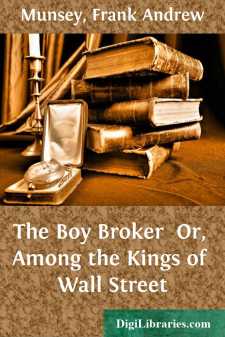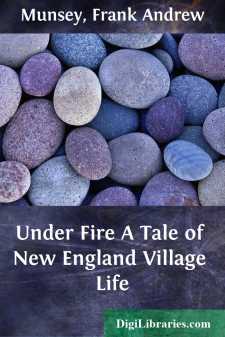Categories
- Antiques & Collectibles 13
- Architecture 36
- Art 48
- Bibles 22
- Biography & Autobiography 815
- Body, Mind & Spirit 144
- Business & Economics 28
- Children's Books 18
- Children's Fiction 14
- Computers 4
- Cooking 94
- Crafts & Hobbies 4
- Drama 346
- Education 58
- Family & Relationships 59
- Fiction 11835
- Games 19
- Gardening 17
- Health & Fitness 34
- History 1378
- House & Home 1
- Humor 147
- Juvenile Fiction 1873
- Juvenile Nonfiction 202
- Language Arts & Disciplines 89
- Law 16
- Literary Collections 686
- Literary Criticism 179
- Mathematics 13
- Medical 41
- Music 40
- Nature 180
- Non-Classifiable 1768
- Performing Arts 7
- Periodicals 1453
- Philosophy 65
- Photography 2
- Poetry 896
- Political Science 203
- Psychology 44
- Reference 154
- Religion 515
- Science 126
- Self-Help 85
- Social Science 83
- Sports & Recreation 34
- Study Aids 3
- Technology & Engineering 60
- Transportation 23
- Travel 463
- True Crime 29
Frank Andrew Munsey
Frank Andrew Munsey was an American publisher and author known for revolutionizing the magazine industry. He founded and edited several popular magazines, including "Argosy", which is credited as one of the first pulp magazines, starting in 1882. Munsey also wrote a few novels, such as "Afloat in a Great City" (1887), which reflects his interest in adventure and fiction. His aggressive business tactics helped shape modern publishing, with a focus on affordable, mass-market magazines aimed at a broad readership.
Author's Books:
Sort by:
CHAPTER I. AN INTRODUCTION TO THE GREAT CITY. "Give me the best morning paper you have, please." "The Tribune costs the most, if that is the one you want." "The price will be no objection providing the paper contains what I wish to find." "You want work, I s'pose." "Yes, I am looking for employment." "I knew it—just in from the country too," said...
more...
"Well, Dave, it was a close game, but we managed to save ourselves after all their talk," said Tom Martin, referring to a baseball match of the previous day. "Yes, but thanks to our lucky stars that Fred Worthington was with us. If John Rexford had kept him at the store, as I was afraid, we should have been badly beaten." "He didn't play the whole game, did he?" asked Tom...
more...



